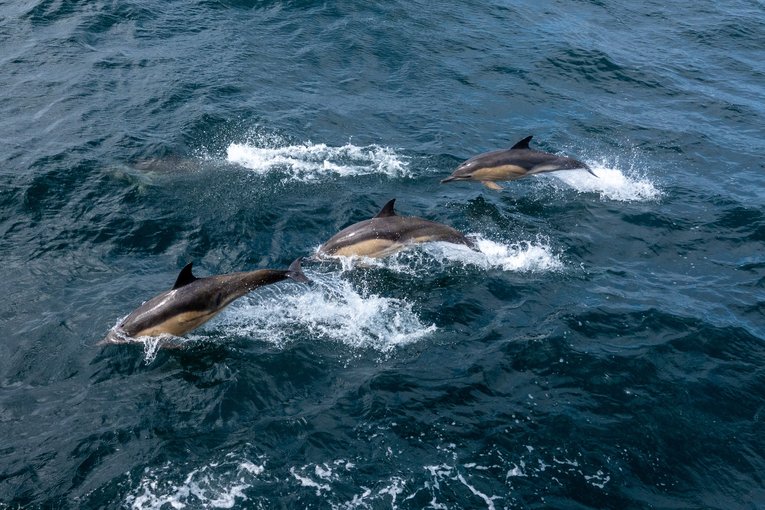
Reflecting on COP 29
Our Marine Natural Capital Analyst, James Merchant, outlines two key outcomes, and how, as a charity, we helped get the voice of the ocean heard at COP 29.
COP 29 recently took place in Baku, Azerbaijan. Largely framed as the ‘finance COP’, a key aim of the conference was to set new funding goals to help developing nations transition to low-carbon economies and adapt to the effects of climate change.
Despite being hot on the heels of COP 16 - the world’s biggest biodiversity meeting to date - there were few agreements made to protect our oceans.

Sandeels in a segrass meadow in Mounts Bay, Cornwall
Credit: Heather Hamilton
Controversial climate finance deal
The main objective of COP 29 was to reach an agreement to significantly scale up climate funding for developing countries. After fraught negotiations, a heavily criticised deal was agreed.
Ahead of COP 29, developing countries campaigned hard to receive $1.3 trillion annually to help transition to a low-carbon economy and adapt to the effects of climate change.
Developed nations are responsible for the majority of historical emissions contributing to climate change but only a fraction of this will come directly from developed nations, through $300 billion of grants and low-interest loans. The rest requires funding from private investors and revenues raised from proposed levies that are yet to be agreed.
The deal has been heavily criticised for not providing the immediacy or scale of funding needed for such a mammoth task. These frustrations led to delegates from small island states and developing countries staging a walk out as negotiations staggered on, with climate justice activists advocating that no deal would be preferable to a bad one.

A pod of short-beaked common dolphins breaching around the Isle of Mull
Credit: James Merchant
Article 6
Despite being the planet’s greatest carbon sink, the ocean remains relatively side-lined on the COP agenda. Of the 12 days of COP 29, one day is set aside for ocean action. However, there was progress around Article 6 of the Paris Agreement which could be significant for blue carbon habitats that bury vast amounts of carbon.
Article 6 sets out how countries that have successfully reduced their greenhouse gas emissions can transfer carbon credits to other countries to reach their own targets. This can be done directly (Article 6.2) or through a UN-backed market (Article 6.4). The UN-backed market could reduce concerns around integrity of credits in voluntary carbon markets and the reputational risks involved.
This agreement has been a long time coming, with the last two COPs trying, and failing, to agree on terms to set up these markets.
Controversially, Article 6.4 was approved at COP 29 without the usual negotiation and consultation process. The move could clear the way for mobilising carbon markets, although bypassing negotiations has raised concerns about the lack of agreement on how to ensure high quality credits.
It remains to be seen how effective Article 6 will be in achieving genuine emission reductions, but the move should bring us closer towards finding out.
How did we contribute to COP 29?
The Marine Conservation Society contributed to COP 29 through the Virtual Ocean Pavilion. Blue Economy specialist, James Merchant, was interviewed by Chalsey Gill Anthony from the Belize Fund for a Sustainable Future.
The discussion addressed the role of the ocean, blue finance and the blue economy in reducing the impact of climate change. James also took part in a roundtable discussion that will be used to form a report on how blue finance can be used to deliver on efforts to combat climate change.
The UK can lead progress where COP 29 failed
As we look ahead to next year, and COP 30 in Brazil, it is extremely important that governments across the world go much further than agreements made this year at COP 29 and COP 16.
As an island nation, the UK has a myriad of opportunities to display global leadership on ocean and nature issues by showing what can be achieved at home, and replicated across the globe.
We’re continuing to work with decision makers across the UK to ramp up ambition for our marine environment to deliver a cleaner, healthier and better-protected ocean for future generations.
James Merchant, Marine Natural Capital Analyst



